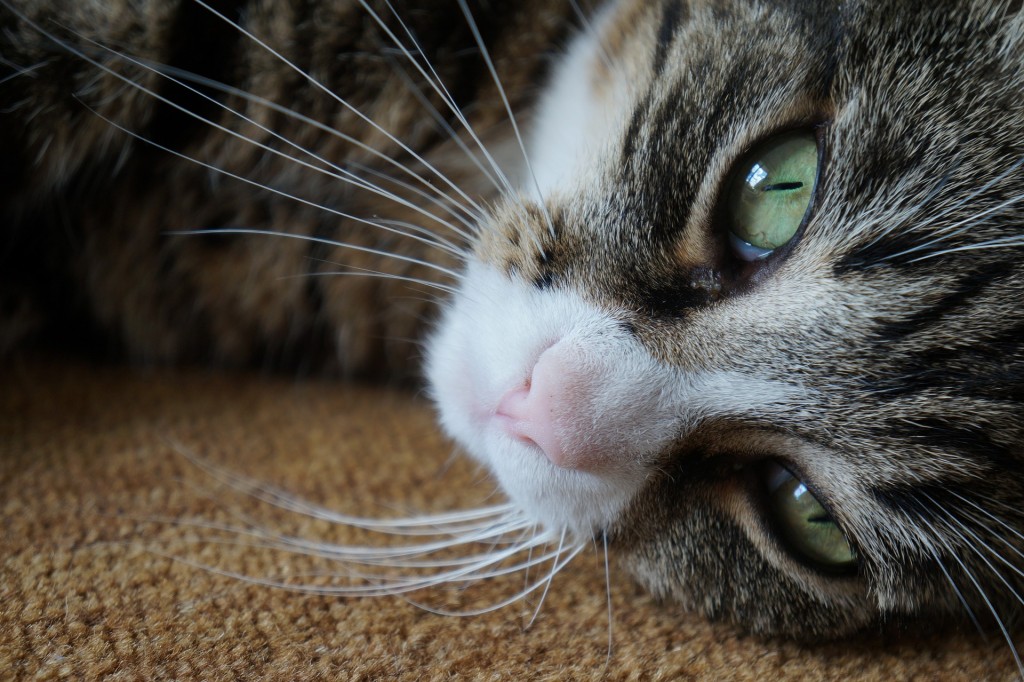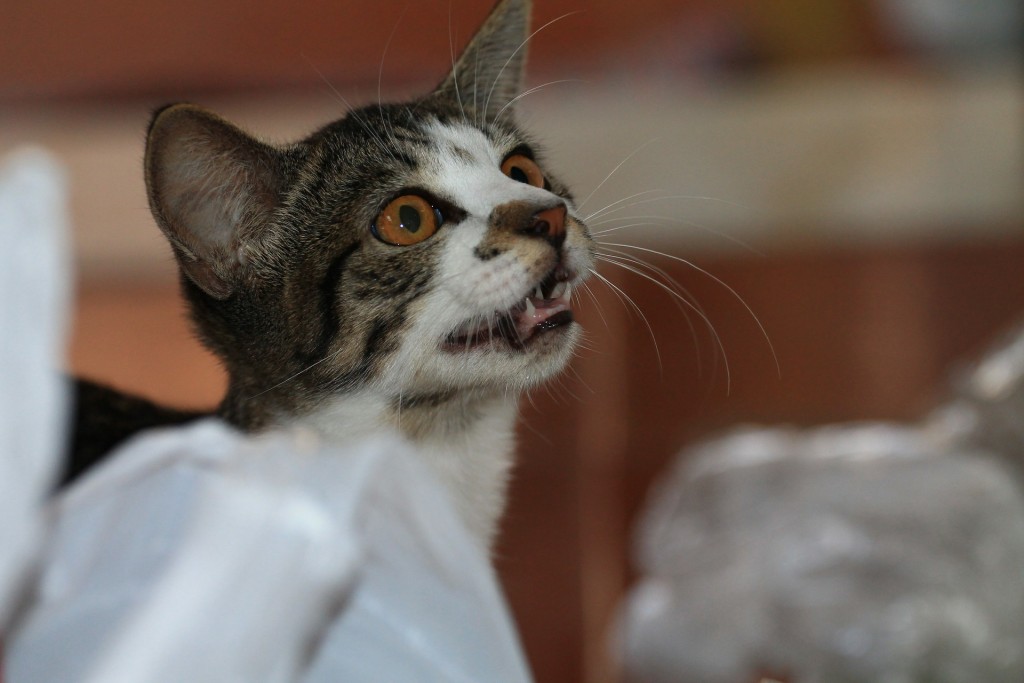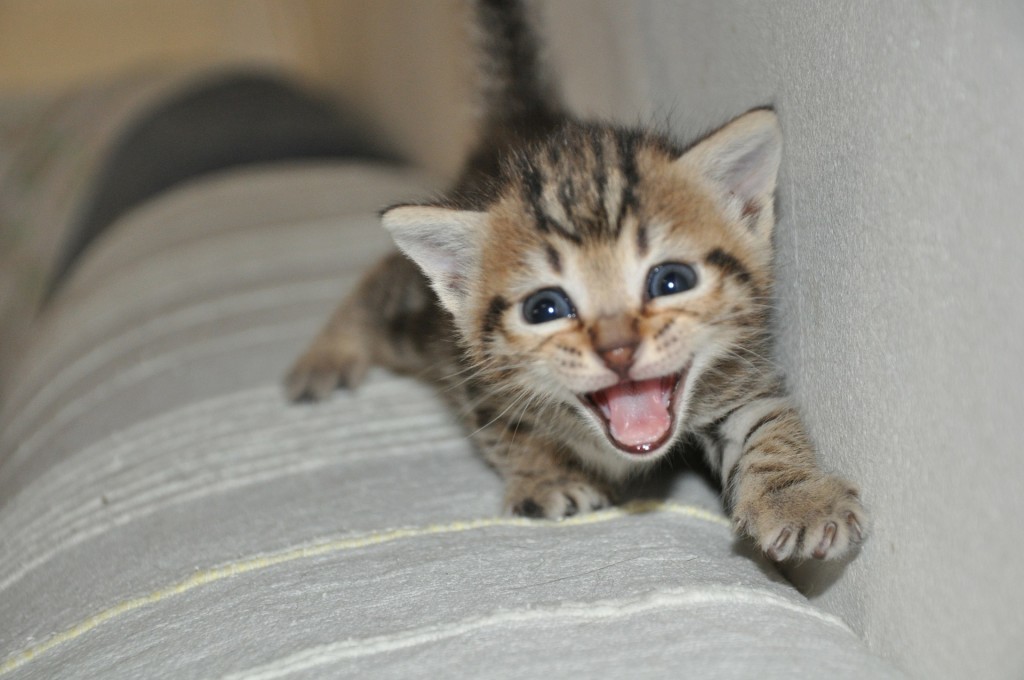
Meowing is one of the things that makes a cat a cat, but that doesn’t mean you want to listen to your kitty meow for hours on end! Answering the question “Why do cats meow?” is the first step in learning how to control the behavior.
So Why Do Cats Meow?
So, why do cats meow? For the most part, cats meow to get the attention of a human. If you have more than one cat, you’ve probably noticed that they rarely meow at each other. Instead, they communicate by using a variety of different noises. They also prefer to use body language when communicating with each other.
Answering the question, “Why does my cat meow?” can be a bit more difficult, as each cat is a little different. Soft, calm meows are likely just a greeting or a ploy for a little affection. Louder meows often mean that your cat wants to be fed or wants access to an area where isn’t allowed. A cat meowing at night may simply want to play, since they are most active at dusk and dawn.
There are also a number of medical reasons why you may ask, “Why is my cat meowing?” Female felines in heat can create quite a ruckus. As cats age, they can experience a marked decrease in cognitive functions, as well as hearing loss, which can increase the frequency and volume of their meows. Your cat may meow if he’s in pain. He may also meow when he’s experiencing extreme anxiety.
Why Does My Cat Meow so Much?

If your breed isn’t known for being talkative, the reason for your cat’s behavior will dictate the actions you take. For meows that demand your attention, make the choice whether or not to provide your feline friend with the attention he craves. Petting your cat after a soft meow encourages quiet vocalizations.
If your cat is yowling or howling for your attention, it’s best to ignore him. He will eventually learn that his loud behavior won’t get him the attention he craves.
How to Stop Excessive Meowing

So now that you can answer the question, “Why do cats meow?” you may be wondering how to stop excessive meowing. If your cat’s meowing is driving you crazy, first understand that some breeds are more prone to vocalizations. The Siamese is a popular cat that tends to vocalize more than others, but the Balinese, Javanese, and Tonkinese are also known to be quite talkative.
For excessive meowing with a medical cause, you should visit with your veterinarian. If your cat is in pain, your vet may be able to provide you with a medical prescription or advice on how to lessen your cat’s discomfort. Your vet can provide you with support for your aging cat. He may also be able to rule out other more serious causes of the meowing behavior.
Anxiety is a real issue for some cats that can cause an unbelievable amount of meowing. There are a number of products on the market that may help ease your kitty’s anxiety. Cat diffusers can be plugged into the wall and emit calming scents throughout the house. You can even purchase calming cat collars that soothe your cat with the scent of lavender and chamomile.
Hopefully, you can now answer the question, “Why do cats meow?” With a little patience and perseverance, you can even reduce this behavior with training and specialty products that can be found online or at your local pet store.